Notes
Sarah Stacke's "Love From Manenberg": Making Strong Bones
Love From Manenberg is not about gangs, poverty, or drug abuse, even though all of those things exist there. It is about how messy life is, and about the relationships photographer Sarah Stacke made and maintains in this Cape Town suburb. This is the third installment in an ongoing series.
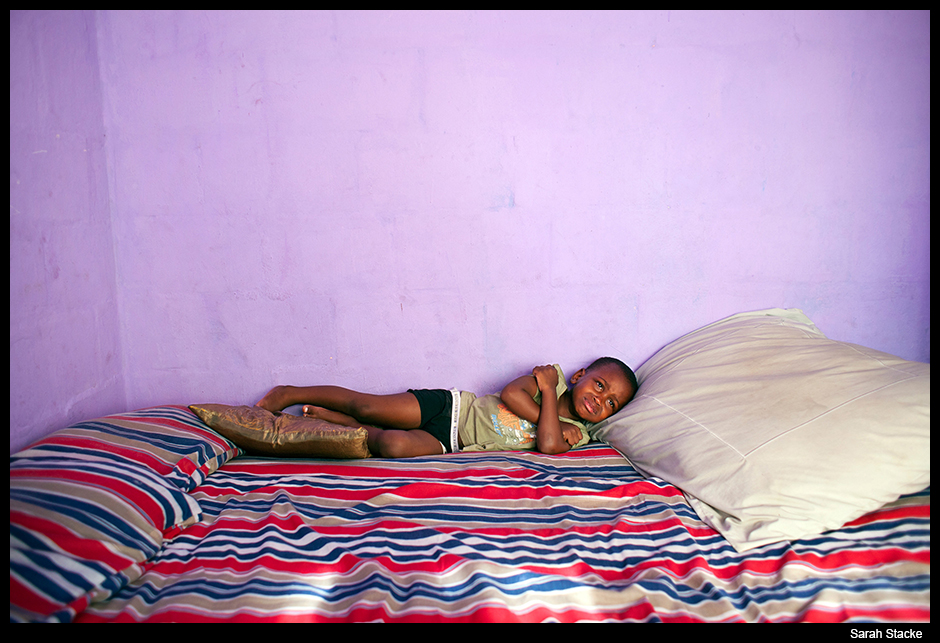
Meezie Lottering at home. When the gangs are shooting it is safer for the people of Manenberg to stay indoors for days, or sometimes weeks, at a time until the shooting stops. It is often described as feeling like a prisoner.
Ashwin is a member of the Hard Livings gang, one of the largest and most powerful gangs in Manenberg, South Africa. He is also a son, a brother, an uncle, a friend, an idol, and a lover. At 20 years old, Ashwin is soft-spoken and moves thoughtfully; he likes to keep his hands in his pockets. He has deep and expressive brown eyes that aren’t afraid of –– or perhaps unknowingly thrive on –– locking into yours or mine.
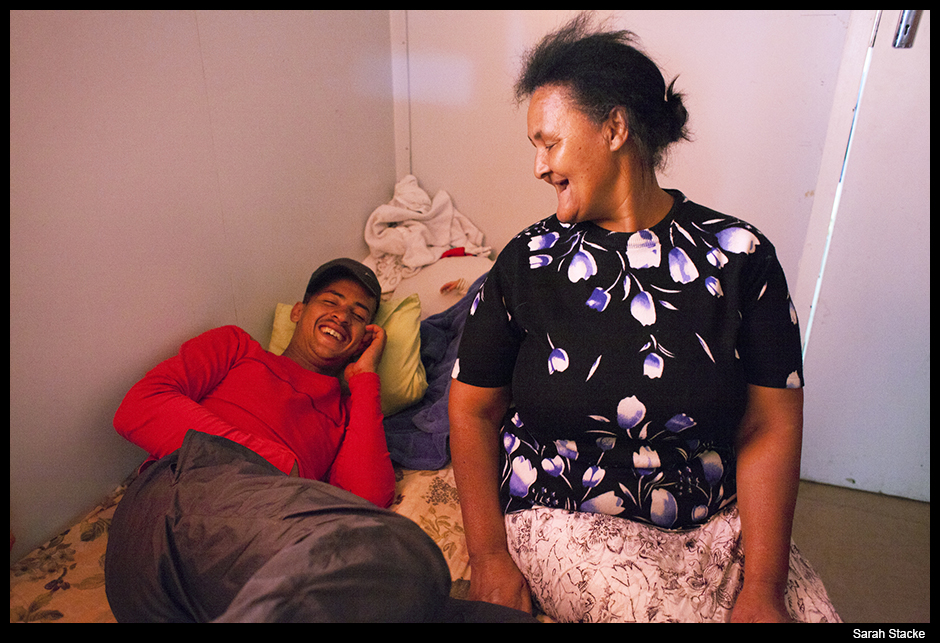
Ashwin and his mother, Charmaine.
Ashwin lives at home with his mother, Charmaine, and a rotating cast of siblings, cousins, uncles, nieces, and other extended family. The bathroom inside their one-bedroom flat is partitioned into two rooms by thin cotton curtains. One hangs in front of the toilet and tub and the other demarcates the entrance to Ashwin’s room, most of which is taken up by the hot water heater. The remaining space, typically used as storage, contains a bed that is shorter than Ashwin and a one-person wooden bench for his many visitors. The youngest of six children, Ashwin is the only person in the home with a room of his own.
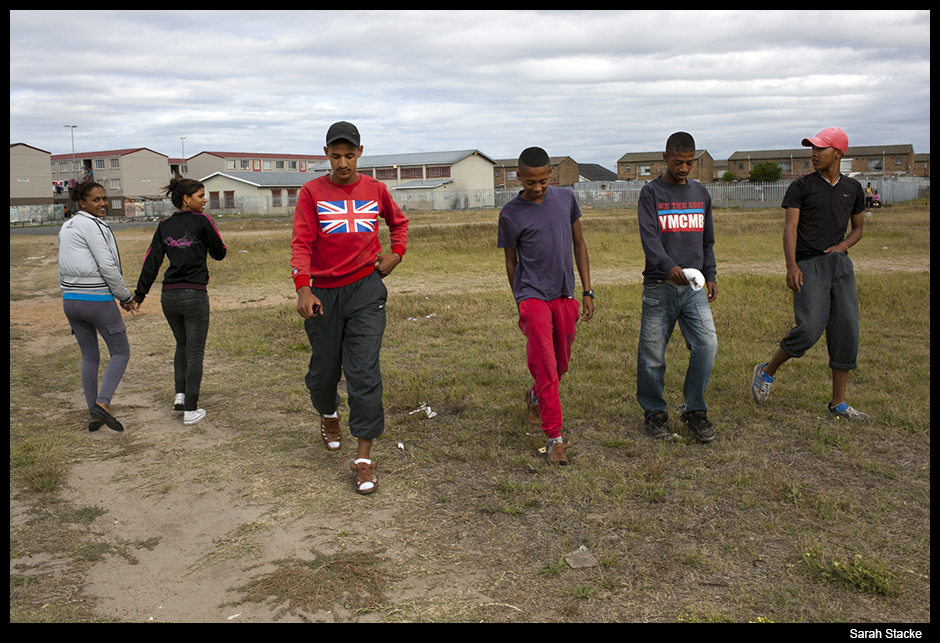
Ashwin and his friends walking in Manenberg.
Manenberg is located in the Cape Flats, essentially a vast sand dune that lies between the rocky, yet lush, Cape Peninsula and the Boland, a region that’s home to most of South Africa’s vineyards. About six thousand years ago the Cape Peninsula was an island, separated from the mainland by the Atlantic Ocean until the floor of the sea emerged as the land that would become known as the Cape Flats, or simply the Flats.
To varying extents, nearly all Flats communities are plagued by poverty and social issues including unemployment, substance abuse, HIV/AIDS, and gang activity. The first people of Manenberg were forcibly relocated there from District 6, a thriving neighborhood near central Cape Town, by the apartheid government in the late 1960s. The process destroyed many of the social networks that individuals and families relied on, resulting in a rise of gangs and crime.
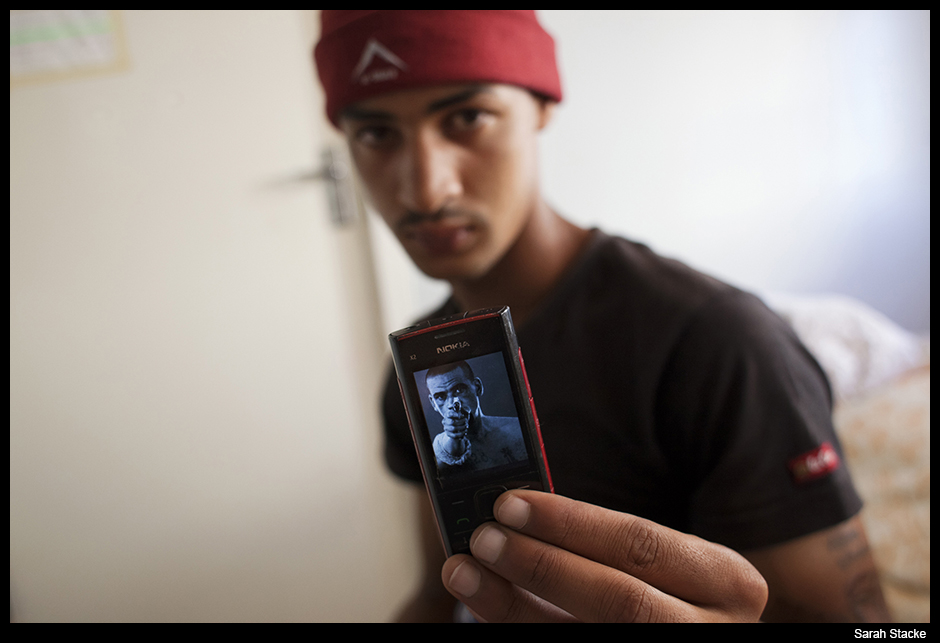
Ashwin holding a picture of the star of Four Corners, a movie about Manenberg gangs.
Ashwin rarely leaves Manenberg, and within Manenberg it’s safer for him to stay inside the Hard Living’s territory. He and his friends gamble with small coins, listen to music, drink, get high, and sometimes engage in small time drug dealing. Fairly typical behavior for many young men and women, yet against the backdrop of marginalized communities like Manenberg, these activities are often judged more harshly, perhaps because their appeal seems indefinite, with little hope of further education or a career. The expression “making strong bones” speaks of the need for boys to be made tough, which can seem more important than academics or job related skills.
As Dr. Elaine Salo points out, where men have limited access to key resources that define masculinity, such as higher education, permanent employment, or the financial means to support a wife and children, the rites and practices of ganging, particularly the physical violence, are used to assert masculinity and individuality.
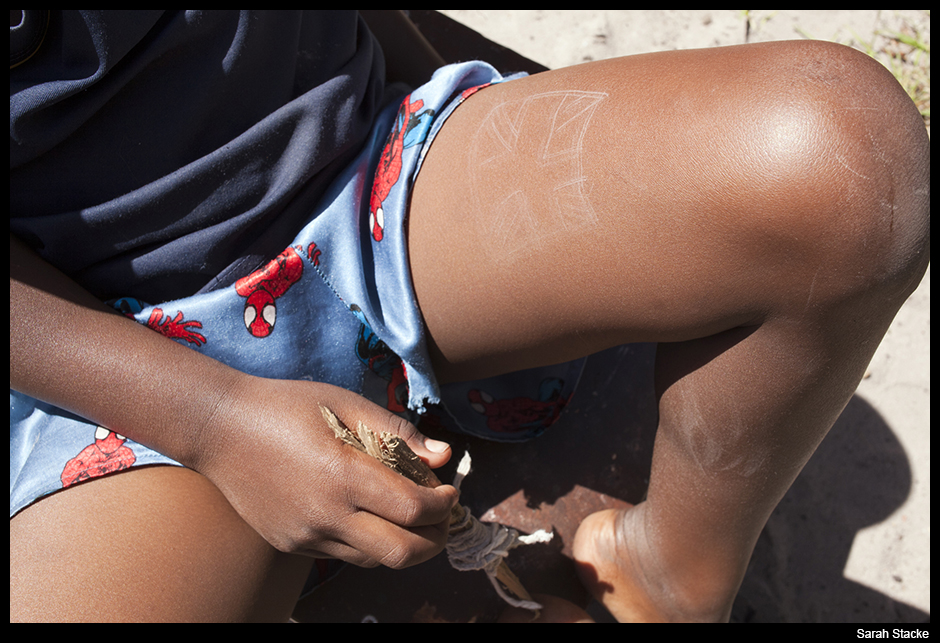
Zobie Lottering, 6, scratches the symbol of the Hard Livings gang into his leg.
The Hard Livings call themselves “The Chosen Ones” and their symbol is the British Flag. Ashwin, other Hard Livings, and those who support the gang in one way or another wear clothing that bears the British flag; it’s sold liberally at the local mall. Their main rival is the Americans gang, which stands for “Almighty Equal Rights is Coming and not Standing.” Accordingly, the American flag is their symbol.
Ashwin, whose nickname is Guru, is a leader among his friends and looked up to by younger boys in the neighborhood. Sometimes when I photograph him, a group of kids will clamor in front of my lens, exclaiming “I’m a gangster, too! Take my picture!” As the group grows the kids will forcefully, and sometimes viciously, push their peers out of the way. These are some of my hardest moments in Manenberg. The admission that the attention I give Ashwin reinforces the idea for some kids that joining a gang offers rewards or fame; if they grow up to be a gangster like Ashwin, they will get my attention –– or the attention of someone like me –– too.
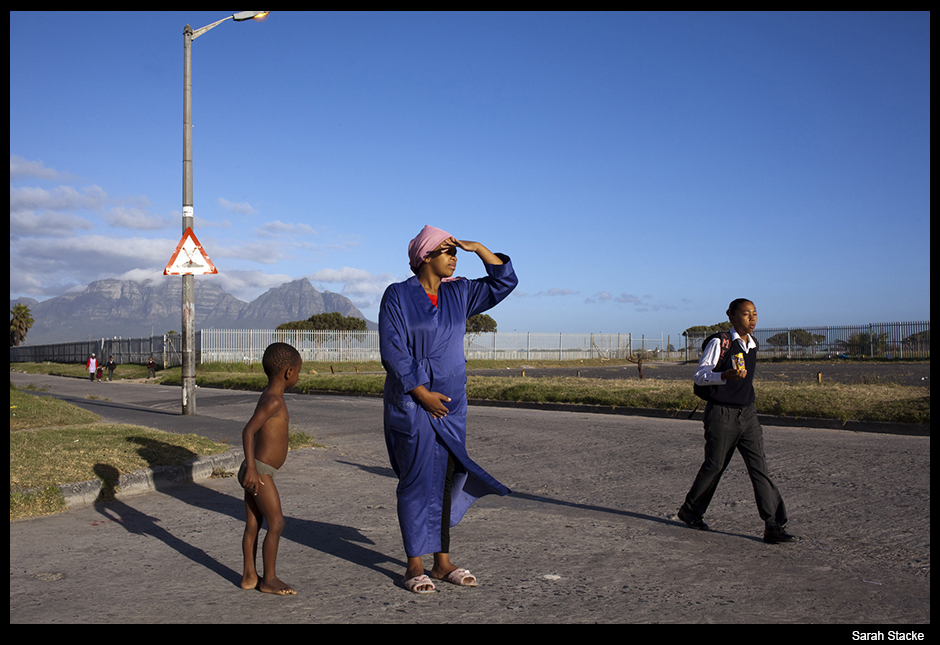
Debby Lottering and Meezie watch Zobie as he walks to school. In August 2013 all schools in Manenberg were closed after a spike in gang violence that killed nearly 50 people. The gangs often shoot at the same time that kids and adults commute to school and work. Bullet resistant fences now surround all schools.
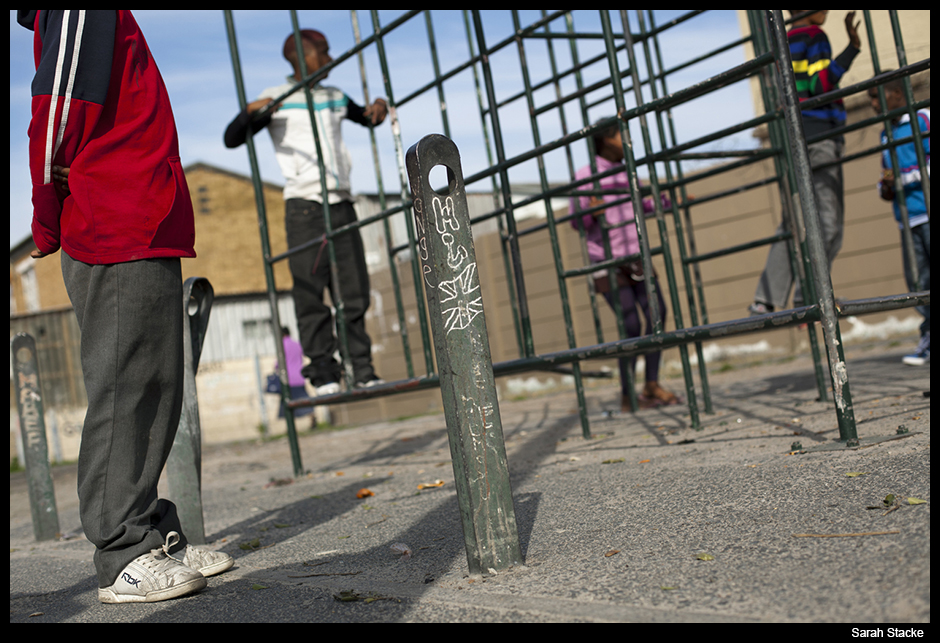
Kids playing on a jungle gym with Hard Livings gang graffiti in the foreground.
What the kids don’t know is that Ashwin does not want to be in a gang anymore. He shared this with me when I took him and a few friends to Sea Point, where they swam in the ocean, searched for crabs in tidal pools, and played pick-up games of soccer. Outside Manenberg, they let the armor of ganging and machismo fall away. At the beach, Ashwin linked his arm in mine, perhaps hoping I could be a step to a life outside Manenberg, or even a slightly different looking life.
Ashwin and I don’t stay in touch when I’m outside South Africa, but I get updates about him from Debby, who is a close friend of his family, and a person I stay in touch with regularly. Yesterday the Hard Livings and the Dixie Boys, a smaller yet well established gang, started shooting at each other in Greta Court after the Dixie Boys beat up a Hard Living. Debby’s dad lives in Greta Court and her two young sons were visiting their grandpa when the shooting started; it’s too dangerous for her to go there or for them to come home. “Ashwin betta watch out,” she said, “The Dixie Boys want to kill him.”
I submitted this piece at 4:24pm EST on Sunday, December 21, 2014. At 10:16pm I learned from Debby that on Sunday night at approximately 10:45 GMT Ashwin was shot dead outside his home.
Ashwin’s death will not likely appear in the local news. Many media outlets are not addressing gang violence in the Flats because of oversaturation and reader fatigue. In the grand scheme of South Africa, violence in the Flats is overlooked by much of the population, politicians included. In the last week of November and first week of December 2014, 20 gang-related murders reportedly took place in Manenberg and neighboring Hanover Park.
Ashwin and me at a park a few miles from Manenberg.
(Photographs and text by Sarah Stacke)
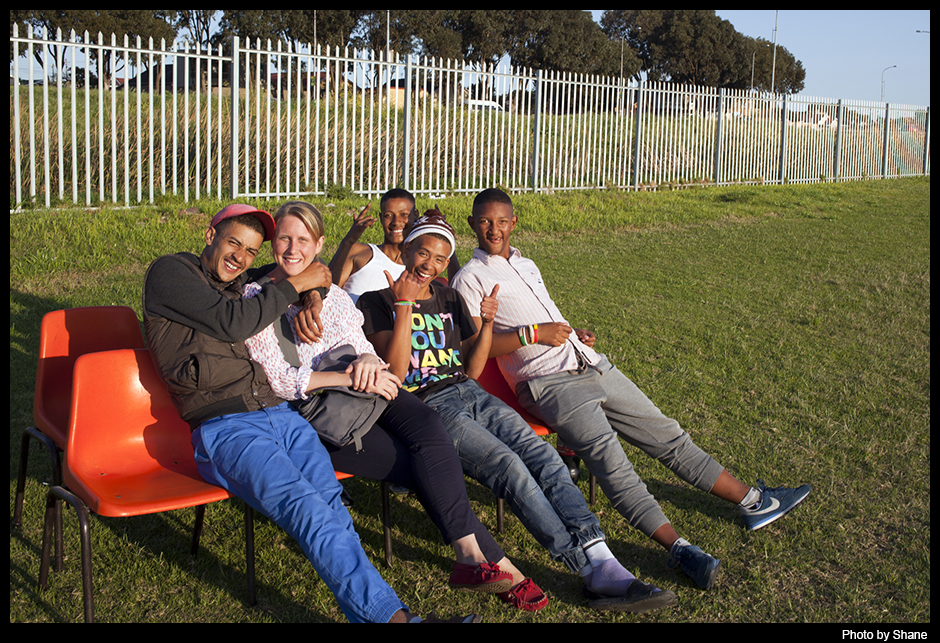
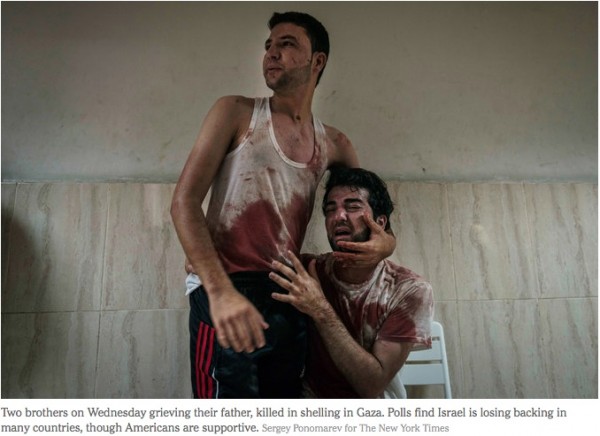
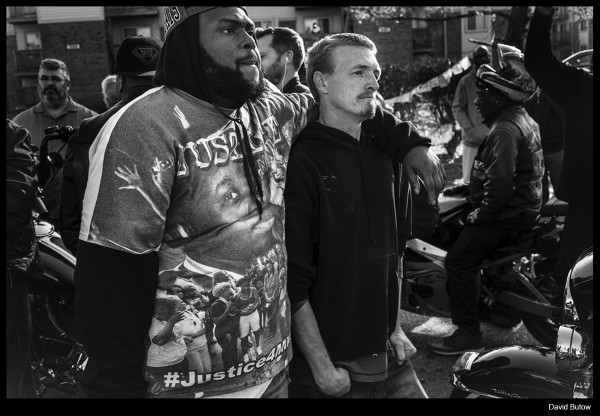
Reactions
Comments Powered by Disqus